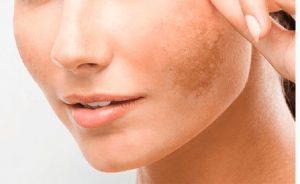Fenugreek Seeds For Hair Growth
Fenugreek seeds are an excellent rich source of protein, fiber, iron, calcium, zinc, magnesium, phosphorus, vitamin B6, niacin, riboflavin, thiamine, folate, copper, manganese, potassium, and selenium. They also contain saponins, tannins, flavonoids, alkaloids, glycosides, and phytosterols.
What Is Fenugreek?
Fenugreek is a flowering plant native to the Mediterranean region. The seeds of this plant are known as “fenugreek,” but it has many other names including Egyptian millet, Indian bean, Greek hayseed, Turkish sesame, Syrian lentil, and wild pea. It grows in dry soil with good drainage and full sun. In India, fenugreek leaves have been used for centuries as food and medicine. Today, they’re widely cultivated throughout Europe, Asia, Africa, Australia, North America, South America, and New Zealand.
The fenugreek seeds for hair loss are rich sources of calcium, protein, magnesium, potassium, niacin, and vitamin C. All these elements help in improving the quality and length of hair. Besides, they also contain iron which improves circulation in the scalp and strengthens the strands. It promotes the growth of hair and keeps baldness at bay. Some of these seeds even contain traces of zinc, selenium, and copper, which are also beneficial for hair growth and head support.
Benefits Of Using Fenugreek Seed Powder And Leaves:
1. Stimulates hair follicles to produce more healthy cells.
2. Helps maintain normal blood sugar levels.
3. Improves digestion.
4. Promotes weight loss.
5. Reduces cholesterol level.
6. Increases energy level.
7. Relieves constipation.
8. Prevents cancerous tumors from forming.
9. Treats diabetes.
10. Lowers high blood pressure.
Are Fenugreek Seeds Good for Your Hair?
Ansley Hill, RD, LD Updated on April 9, 2019, What it is Hair growth Healthy scalp Hair health factors Uses Bottom line We include products we think are useful for our readers. If you buy through links on this page, we may earn a small commission.
Fenugreek or methi seeds are frequently used as a natural home remedy for thinning hair and other related conditions, such as dandruff or a dry, itchy scalp.
Beauty publications and other popular media sources claim that they’re the secret to growing thick, shiny hair.
See also
How Does Fenugreek Work?
Fenugreek has been used for centuries to treat hair problems such as dandruff, thinning hair, and baldness. It is also known to stimulate hair growth. Fenugreek contains a compound called diosgenin that stimulates the production of testosterone in men. This hormone helps promote hair growth on your scalp. In addition, fenugreek can help prevent premature greying of hair by stimulating new cell growth.
How To Use:
Add 1 tablespoon of dried ground fenugreek leaves or powder into 2 cups of warm water and boil it until reduced to half its original volume.
Strain out the solids and drink this tea daily before meals.
You may add honey if you like.
You can use fresh fenugreek leaves instead of powdered ones.
Simply chop them finely and mix well with warm milk.
Drink this mixture every morning after breakfast.
Can I Take Fenugreek With Other Supplements?
Yes! Fenugreek works best when taken alone. However, some people find that taking fenugreek along with certain supplements makes their results even better. Here’s what you should know about combining these two remedies together:
If you take iron pills, make sure you don’t exceed recommended dosages because too much iron will cause diarrhea and nausea. Iron-rich foods can interfere with absorption so avoid eating large amounts at one time.
You shouldn’t combine fenugreek with any medications unless advised by your doctor. Some drugs interact negatively with each other.
Side Effects Of Taking Fenugreek For Hair Loss
The side effects of taking fenugreek for hair loss aren’t well-known. However, one possible risk is that fenugreek could cause diarrhea. This might happen when too much fenugreek is taken at once.
You shouldn’t use fenugreeks unless they’re recommended by a doctor who knows what medications you’re already taking. And even then, talk to your doctor before starting any new supplements.
Other Ways To Promote Hair Growth
Since there’s not enough proof that fenugreek promotes healthy hair growth and the herb has a fair share of side effects, here are some other ways to try to retain or grow hair.
Have a healthy diet. If you’re losing hair, you may have a nutrient deficiency, which means you’re not eating well enough. You could also lose hair because you have too much of a certain kind of nutrient.
It’s very important to eat a balanced and healthy diet. A study has suggested that diets rich in fresh herbs and salad, such as the Mediterranean diet, can reduce the risk of male pattern baldness or female pattern baldness.
You should also eat foods high in protein which is made up of amino acids to promote hair growth. A study has shown that some people with hair loss have diets lacking in certain amino acids.
Foods high in protein include:
- Meat, especially poultry and red meat
- Lentils
- Salmon and other fatty fish
- Eggs
Before you start taking nutrients for hair loss, make sure to talk to your doctor about your symptoms, medical history, and your health goals.
They will walk you through what you need to do to prevent hair loss and boost hair growth.
Have a healthy work-and-life balance.
Stress can make your hair loss worse.
A study has indicated that higher levels of cortisol, a stress hormone, can lead to hair loss by weakening your hair follicles. As such, you should try to strike a good work-and-life balance. You can do so by taking breaks throughout the day, if possible, and doing more exercise. Any form of exercise, whether that’s yoga or jogging, can help relieve stress.
What are Methi seeds?
Methi seeds are small blackish-brown seeds used in Indian cooking. They look like tiny lentil beans but taste similar to cumin. The seeds contain an essential oil called methi oil, which contains sulfur compounds. These sulfur compounds give them a pungent smell and flavor.
How does it work?
There isn’t enough evidence available on how methi seeds actually work. But studies suggest that these seeds stimulate blood circulation around the scalp, thereby promoting hair growth.
Is It Safe?
There haven’t been many reports of adverse reactions from using methi seeds. In fact, most users report positive results after trying this supplement.
However, keep in mind that methi seeds don’t replace conventional treatments for hair loss. Instead, they act as a complementary treatment option.
How to Make and Use Fenugreek or Methi Water
Follow the steps given here to make Methi water for hair growth:
Soak two tablespoons of Fenugreek seeds overnight in a bowl of water.
The next morning, boil it by adding another bowl of water.
Cool it down and strain the water.
You can directly spray the water on the roots using a spray bottle.
Keep it for 4-5 hours or overnight.
Rinse it off with mild shampoo.
Note: Strained fenugreek seeds can be used to make an ayurvedic hair-type mask.
As a result, the hair follicles are stimulated to grow and produce more hair.
The seeds of fennel have been used for centuries in India as an aphrodisiac. It is also known that it has anti-inflammatory properties which help with healing wounds. Fenugreek can be added to your diet if you want to improve your overall health.



